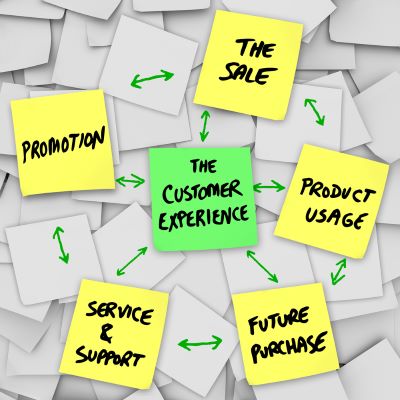While fluidity has always been a defining characteristic of sales, a recent shift to guided selling is currently taking place. Consumers’ experiences are becoming increasingly digital and remote– from the selling process through onboarding.
Navigating this change to success requires establishing a formal sales process based on the company’s sales history. This concept is called guided selling.
With an emphasis on capitalizing on lessons learned from the past, guided selling gives salespeople a distinct advantage. It creates the steps of the sales process on a solid foundation built from previous successes and failures.
What are some of the ways that guided selling closes the gap in traditional sales challenges?
Everyone Wins
Happy customers become loyal customers. Guided selling benefits not only the business engaging in it but its customers, as well. It gives buyers the ability to make better-informed decisions due to the following:
- The information they can learn about the product or service
- Guidance from the seller on how buyers can fulfill their needs with the product or service
- Easing or elimination of friction in the buying process
- A fast, straightforward sales process
Sellers also benefit from the streamlined sales process. Additionally, guided selling cuts out a great deal of noise that can overwhelm and confuse buyers.
Enhanced Sales Pipeline Visibility
By leveraging sales history as part of the strategy, guided selling provides a level of visibility that other approaches lack. It also pulls sales-related data from all the tools and communication channels used by the sales team.
Artificial intelligence (AI) gives sales leadership an additional layer of visibility, analyzing sales data to determine the results generated from specific actions. Salespeople receive critical insights at every step. This insight guides them on how to handle every opportunity or situation in a way that is suitable for that prospect.
This insight is all made possible by AI. The technology analyzes historical sales cycles and leverages them to guide salespeople in the right direction. When AI steps in, effective nurturing of leads and keeping prospects engaged becomes the norm rather than the exception.
Formalized Sales Processes for Better Control
Centralizing the sales strategy and establishing standards is the first step. The second step is utilizing automated reminders and notifications to formalize the process. Doing so provides organizations more control over their sales process instead of hoping that salespeople will follow the standards set by leadership.
To be clear, guided selling does not rob salespeople of their independence. Instead, it ensures they include all essential steps and details, take the correct actions of their own accord and provide leads with a homogenous experience. At the same time, this framework encourages salespeople to think creatively.
Automation Improves Productivity
By incorporating automation, guided selling allows salespeople and sales managers to focus on selling. Historically, sales teams had to deal with administrative tasks that took some of their time. AI handles repetitive tasks such as hunting down information, reporting and training.
Automation takes care of the following:
- Auto-syncing regularly used tools such as calendars
- Capturing and organizing data in the customer relationship management (CRM) platform
- Automating mass outreach across communication channels
Guided selling makes the most of AI and formalized strategies. By giving sales teams guidance informed by historical sales data, this sophisticated approach sets up businesses for sales success.
Uncertain times call for creative thinking. Contact Gavel International to be inspired with solutions that connect and engage your people.
- 9 Experiences to Fall in Love with the Renaissance City: Florence, Italy - April 22, 2024
- How to Build Corporate Meeting KPIs that Will Demonstrate ROI to the C-Suite - April 1, 2024
- 3 Reasons Why Travel Incentives Are a Worthwhile Investment - March 18, 2024







